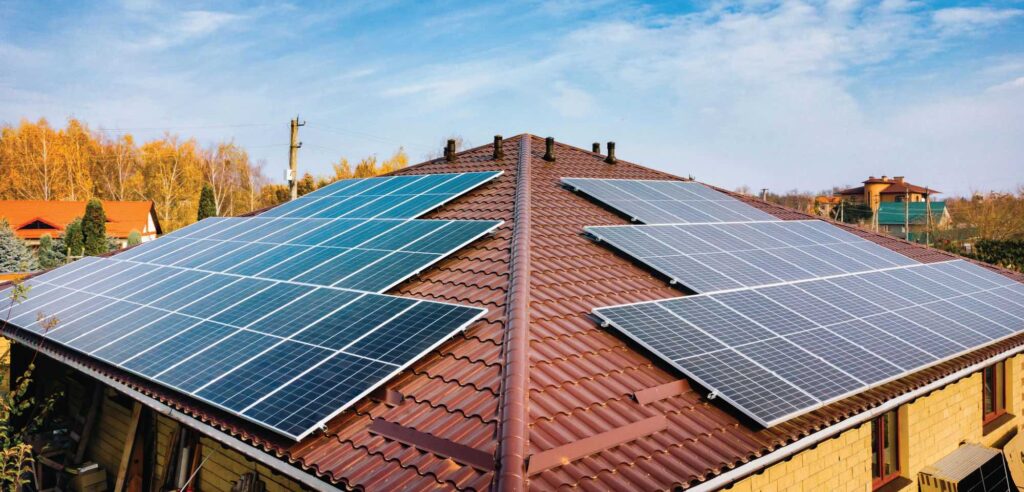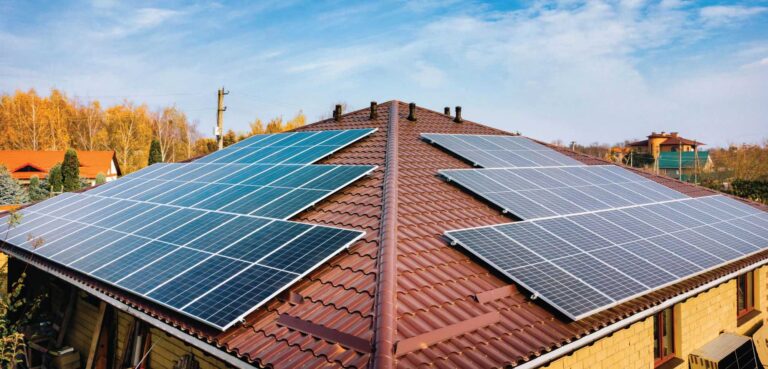
As energy prices rise and environmental concerns grow, more homeowners are considering solar power as a viable solution. Solar panels promise not only reduced electricity bills but also long-term sustainability and independence from traditional energy sources. Yet the question remains: is solar power for homes really worth the investment? By looking at costs, benefits, and long-term impacts, homeowners can make informed choices about whether solar is the right option for them.
The Appeal Of Energy Independence
Solar power gives homeowners the chance to reduce reliance on grid electricity. By generating energy directly from the sun, households can power daily activities more sustainably. During peak sunlight hours, panels can even produce more energy than needed, which in many cases can be sold back to the grid.
The appeal of independence mirrors the subtle individuality people express through something like a girl hidden face blurry aesthetic mirror selfie—it’s personal, unique, and meaningful, even if understated. Owning solar panels often feels the same way: a personal choice that reflects values of self-reliance and responsibility.
Economic Considerations
One of the most common reasons homeowners explore solar energy is the potential for financial savings. While the upfront costs of installation can be high, government incentives, rebates, and lower utility bills offset the investment over time. For many, the payback period is between 5–10 years, after which solar panels provide free electricity for decades.
Finding trustworthy installers and suppliers can be overwhelming, which is why platforms like business directories in Australia are so useful. They help homeowners compare services, read reviews, and connect with reliable professionals—ensuring their solar investment is handled by experienced providers.
The Environmental Impact
Switching to solar energy significantly reduces a household’s carbon footprint. Unlike fossil fuels, solar power generates clean energy without harmful emissions. For environmentally conscious families, this reduction in greenhouse gases aligns with values of protecting the planet for future generations.
In a way, it resembles the role of online communities like https://mysadshayari.com, where people find collective expression in shared values and emotions. Solar adoption similarly reflects a growing cultural movement toward sustainability, uniting individuals in a shared commitment to positive environmental change.
Property Value And Market Appeal
Solar panels don’t just save money—they also add value to homes. Buyers are increasingly attracted to energy-efficient properties, seeing them as cost-saving and environmentally responsible investments. Studies show that homes with solar panels often sell faster and at higher prices compared to similar properties without them.
Tools like an Australia property directory make it easier to see how solar-ready homes are becoming more prominent in listings. These platforms highlight features that attract buyers, making solar an investment not just in savings, but also in long-term property appeal.

Lifestyle Benefits Beyond Energy
Beyond finances and property value, solar power enhances lifestyle. With energy storage systems like batteries, families can enjoy uninterrupted power even during outages. This security is especially valuable in regions with unstable power supplies or frequent weather-related disruptions.
Moreover, adopting solar reflects a lifestyle choice toward self-sufficiency and eco-friendly living, shaping how households use and value their resources.
Comparing Costs To Everyday Spending
Skeptics often focus on the upfront costs of solar, but when compared with other lifestyle investments, solar often makes financial sense. Many households spend thousands of dollars on entertainment, vacations, or dining out each year. Choosing solar is an investment in reducing long-term expenses rather than recurring costs.
This perspective is similar to how people make choices in exploring restaurants in Australia. Some options may cost more upfront, but the value lies in quality and long-term satisfaction. Solar power works in the same way: the initial expense is outweighed by years of reliable returns.
Challenges And Considerations
While solar power offers many benefits, challenges do exist. Upfront costs remain a barrier for some, even with rebates. Installation depends on roof size, orientation, and shading, meaning not every home is ideal for solar. Additionally, homeowners should research warranties and long-term maintenance before committing.
These challenges highlight the importance of careful planning. Working with certified installers, seeking professional advice, and comparing quotes ensure homeowners make choices that truly benefit them over the long term.
Conclusion
Solar power for homes is more than just a trend—it’s a strategic investment in financial savings, environmental responsibility, and property value. While the initial costs may feel daunting, the long-term benefits in reduced bills, increased home value, and energy independence make solar a worthwhile option for many homeowners. Ultimately, the decision to install solar panels reflects both practical and personal values. For modern homeowners, solar isn’t just about saving money—it’s about shaping a lifestyle that prioritizes sustainability, security, and smarter living. By carefully weighing costs, benefits, and long-term goals, homeowners can decide if solar power is the right step toward a brighter, more sustainable future.






